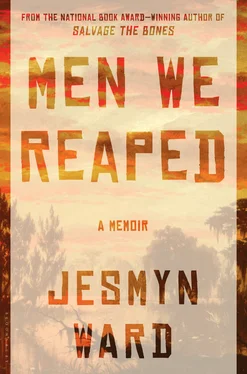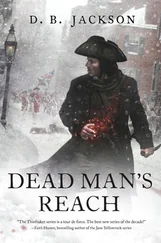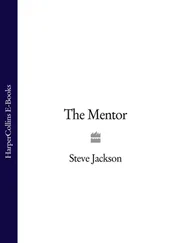I packed the rest of my clothes in large suitcases and flew into the New Orleans airport, where my mother and nineteen-year-old brother picked me up in the large cream-colored Caprice that my mother’d bought for herself and then given to my brother for his first car. They loaded my luggage, straining at the seams, next to the speakers in the trunk. My brother played the music low, even though he had ridiculous beat. At our house, my sisters ran out to hug me. Nerissa was seventeen, while Charine was fourteen. They helped me unload my bags and bring them inside to the room I shared with Nerissa and De’Sean when I was home. Josh dropped my black suitcases on the floor with a grateful grunt.
I was home.
At Stanford, I’d longed for home and asked myself how to return, but I was shortsighted. I’d never asked myself how it would be to return. I hadn’t thought about finding work, about how long I would stay in my mother’s house, about what it would be like to return to Mississippi and feel mired, feel like I’d never left. To begin with, I couldn’t find a job.
Both of my sisters were in school, and my mother still worked as a housekeeper, which meant that when I woke up each day to begin my tedious, demoralizing job search, I awoke to the silent house, barely cool in the heat, with my brother asleep in the next room. He’d endured only one school year with my father, coming back home when my father couldn’t afford to pay his mortgage and moved into another apartment. The next summer he’d lived with my father again for a few months, but then come back to my mother’s again. When he moved back for the last time, he told our mother, jokingly but not: “I’m never leaving you again.”
Joshua and I awoke every day near noon, groggy and hot. He’d stumble out of his room, the smallest in the house, where his frame took up all of the double bed he slept in. He’d decorated his walls with art he’d done while he was still in school. He had a wall of VHS tapes on the bookshelf my mother’d installed for him. When my mother had upgraded to a double-wide four-bedroom trailer a few years earlier, she assigned Josh the smallest bedroom. He’d argued with her about it.
“You’re never here,” she’d said. He was always at work or spending time with his friends.
“If I had a bigger room, I’d be here more,” he’d said. And then: “I’m the oldest now.” Still, the smallest one was his, and, pressed by its confines, he sometimes left the house before I could ask where he was going. The sound of his car was louder than the sound of the day, the summer bugs buzzing in the trees, the electrical hum of the trailer like another larger bug: this is what woke me.
I went to friends’ houses to use their computers to search for jobs. I filled out job application after application, printed out and mailed multiple resumes, but my English B.A. and my communication M.A. were virtually worthless in the southern coastal economy, which was ruled by casinos, factories, hospitals, and military bases. I began to apply to jobs farther away, in Alabama, in Louisiana, and after I realized I was failing, I extended my job search to Georgia and farther north, but had no idea about the challenges of being selected for a job when not in residence. Many of my Stanford classmates had been recruited by top consulting firms and investment banks, and my understanding of the job search was confused by the ease of their process. I called employers, pleaded for news, and my mother’s long-distance phone bill grew.
My brother spent his days riding in his new car, an eighties-model Cutlass he’d bought after he accidentally shot the gas tank of his Caprice while playing with a gun. He dropped off applications at gas stations, casinos, factories. He’d worked at a wax factory first, from which he brought home huge chunks of wax melted to look like amber. “It’s beautiful,” he said as he spun it before me. After that, he worked as a janitorial attendant at a large gas station, the first of its kind on the coast, that catered to truckers. It was directly off I-10, and he hated it. Part of his job included cleaning restrooms. He quit after working there for only a few months, but while he was there, he saved money and ate at the truckers’ restaurant adjacent to the station, where they served cheap steaks and all cuts of meat thick with gravy. He liked the food, sometimes bringing plates home. While he may not have loved this low-wage work, he could still find beauty wherever he was; this was how he tried to understand the world, what gave his life some meaning, made his employment tolerable because the ugliness was clear to him, too.
“Why don’t you like working there?” I asked him once.
“Truckers are fucking disgusting,” he said.
It was June. Nerissa and Charine told us my mother had hinted she might kick Joshua and me out of her house if we didn’t find jobs. Weeks later, Joshua found a job. The Grand Casino in Gulfport hired him as a valet parking attendant. He wore a purple shirt with the name of the casino and a little pot of gold coins embroidered in gold thread over his heart. He liked this job. He told my mother he was able to drive nice cars all evening and get paid for it. It was easy. My mother took the long-distance service off the phone because she said I was running it up too high, so I asked my brother to drive me to the gas station during his off hours, where I bought phone cards. None of it did any good. I remained jobless.
Before Joshua found the casino job, and in the periods between working at a fast-food place and the wax factory and at the gas station, he continued to occasionally sell crack to a few junkies in the neighborhood. This was his stopgap. It was a necessity for most young Black men I knew in the community to do so, at one time or another, to sell some kinds of drugs in a sluggish economy where their labor was easy to come by and totally and completely expendable. It was another cold day when I found this out, during December 1999, before the spring that I moved home. I was visiting from Stanford for the holidays. We were on St. Stephen’s, and we were in a neighbor’s front yard. Their house was old, dilapidated. Each piece of its siding was rotting, peeling away in gray and black and brown strips. The front steps were coming apart, nails surfacing like unshaved hair. The neighbor called Josh to the front door and he went, tall and pale, his puffy green and white Philadelphia Eagles jacket making him appear bigger around than he was. In the darkness of the house, the eagle dimmed to cream. He talked to her and she laughed: full and loud, throaty with a smoker’s gravel. It threaded the air. She handed him money for what he gave her and hugged both of us before we left her and her friends to their talk, the dust-dark air, the clouded windows of the house. Later at our mother’s house, I followed him into his room. It was warm, the Christmas lights my mother strung over the mantle in the living room shining rainbow bright under the crack of the door.
“You selling again?”
“Yeah.” He glanced away from the television and toward me. Arnold Schwarzenegger was on the screen. “I’m looking for a job.”
“For real?”
“You think I like to do this shit?” he said. “I ain’t like the rest of these fools out here. You know when I got a job, I work.”
I was his big sister: I was worried about him. He’d dropped out in ninth grade, enrolled in and attended Job Corps for a couple of months. After he was written up for not making it to school on time and threatened with expulsion, he’d quit. Why’d you stop going to Job Corps? I’d asked him. Because when I drive to school in the morning, I got half-naked girls running out the projects and flagging my car down when they see it . He’d shrugged. What the hell am I supposed to do? He wasn’t kidding. Girls he dated actually did that, and I didn’t doubt him when he said it; he was that handsome. Eventually he enrolled in GED classes. He’d thought about joining the military briefly, but after watching Full Metal Jacket , he’d decided that he was not a soldier. I don’t want to die like that , he’d told me when I asked him why he’d changed his mind.
Читать дальше












